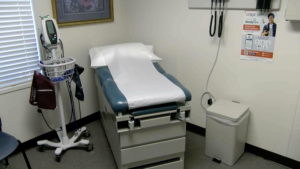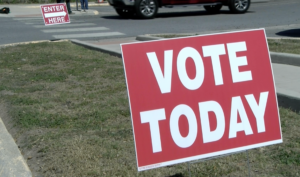EDINBURG- A NORC poll states voters prioritized the economy as their main reason for voting in the 2024 Election, two UTRGV faculty members gave their insights regarding Trump’s economic plan for his second term.
Gautam Hazarika, UTRGV’s Economics Department Chair and professor, said the U.S. is currently doing “very well” when it comes to the economy.
“The economy is actually doing well,” Hazarika said. “The stock market is booming. The unemployment rate is just around 4%, which is really low. Wages are rising, inflation is down. So, the economy is actually doing quite well, I would say.”
He also added that because Trump had imposed tariffs on China, this will lead to the increase of prices on goods but may increase job creations.
The Investor’s Business Daily states, tariffs are the imposing of taxes on imported goods. Depending on how high the tariff is set, the consumer purchasing would have to pay more taxes for an imported item. Therefore, it can affect the economy of any country if it relies on exporting goods.
“Because once you make foreign goods more expensive by putting this customs duty or customs tax on them, this makes goods in the U.S. more competitive, right,” Hazarika said. “So, instead of a custom of buying a product made in China, which is usually cheaper, this custom will allow perhaps buy a good made in the U.S. because the Chinese product has been made more expensive by these customs duties.”
Tax Foundation stated in 2018, China participated in unfair trading policies which led to Trump to impose a 25% tariff.
In 2017, Trump signed on a bill called the Tax Cuts and Job Act, the bill serves to lower the taxes for people and corporate tax. The bill would allow an individual to pay less on taxes but also earn less from a tax break credit. A tax break credit is a type of discount an individual receives depending on their status on taxes.
The tax cut for individuals will end in 2025, but for corporate companies the cut is permanent, decreasing from 35% to 21% in taxes.
Clyde Barrow, a UTRGV Political Science professor, explained how this act mostly benefited the wealthy rather than the low or middle class.
“That tax cut was a one and a half trillion-dollar reduction in taxes and about 90% of that tax reduction went to the wealthiest 1% of Americans,” Barrow said. “It was basically a tax cut for billionaires and large corporations. What did they do with that money? Well, they didn’t invest it in the economy, they invested it on increasing stock dividends to shareholders and stock buybacks to inflate the value of stockholdings.”
He explained how economists consider budget deficits to be inflationary.
“That means the government is consuming more of the capital that would otherwise be available for private investment,” Barrow said. “It is creating additional demand which puts an increase pressure on prices.”
Hazarika explained when tax cuts are given to the wealthy it reduces the government tax revenues, which increases the budget deficit and when that happens the U.S. must borrow money which results in nation debt to increase.“[Donald Trump] may counter that his tariffs will earn the government some revenues,” he said. “And that’s the possibility that some of the tax is lost from reduced taxes on the rich, will be made up for by these tariffs; revenues that come from taxing imports.”






